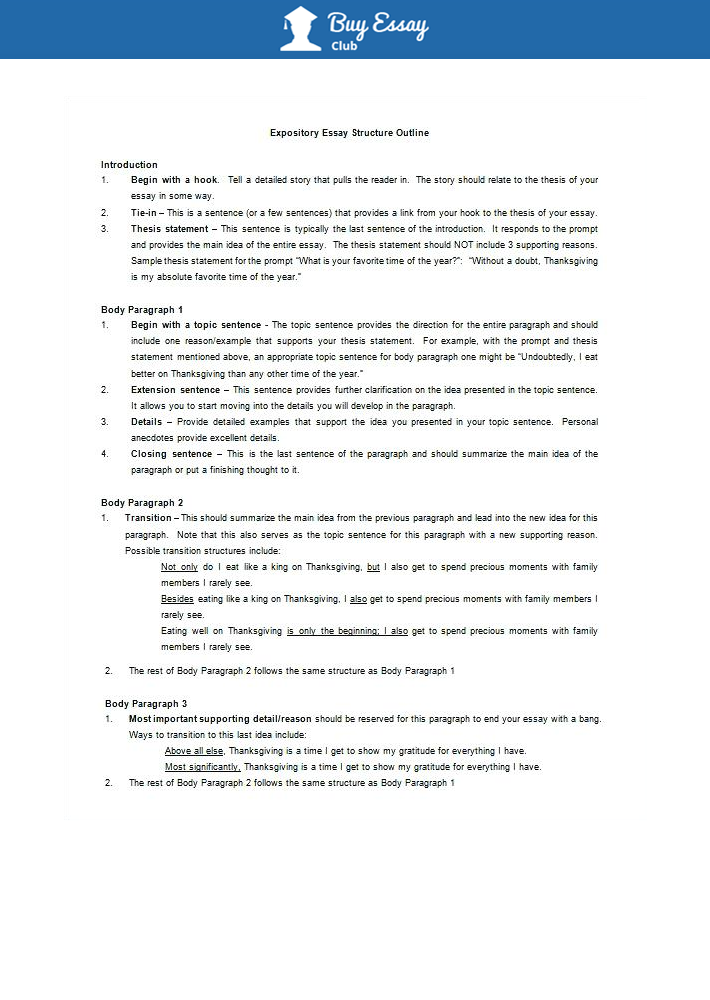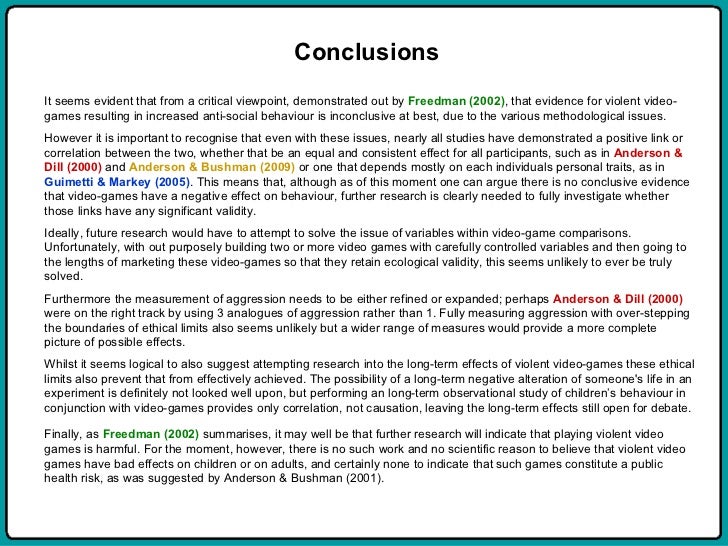
Jun 13, · Expository synthesis essay can also be called research synthesis essay at times. As an excellent synthesis essay example, you can check out any literature review on issues related to the social sciences, such as sociology, linguistics, or psychology. The Definitive Guide to Writing a Problem Solution Essay We would like to show you a description here but the site won’t allow blogger.com more Aug 28, · Expository writing is writing that seeks to explain, illuminate or 'expose' (which is where the word 'expository' comes from). This type of writing can include essays, newspaper and magazine
6 Types Of Expository Writing with Examples
Critical essays are among the most common types of writing expository essay guide in college. and proving that your evaluation is correct. The problem is, expository essay guide, students often confuse a critical essay with a report, a critical precisor a review, expository essay guide. A critical essay has a claim and evidence to prove that claim. Here you need to analyze the work a book, a movie, expository essay guide, an article, whateverrespond to its central themes, and evaluate how its author conveyed them.
Check our guides on expository essays or persuasive essays instead. In other words, your essay is critical if:. When a teacher assigns a critical essay, they want to get a professionally presented and grammatically correct paper with a clear argument and consistent and accurate references to support that argument.
Before you take a seat and start writing a critical essay, make sure you understand its characteristics and purpose inside out. You need to analyze and evaluate a work. You need to express a central claim of your work in a thesis statement and then support it with evidence in each body paragraph. Note: The evidence can be either the details from a source dialogues, imagery, expository essay guide, text structure, etc.
or secondary resources such as scholarly articles or expert reviews that can help you support your argument. You need to write a conclusion. Summarize a critical essay, emphasizing its most essential insights. Long story short, here go your steps to write a critical essay, expository essay guide. It stands to reason that you need to read it first, right? So, your first step to writing a critical essay will be critical reading.
And while reading, expository essay guide, make sure to take as many notes as possible. Take note of the instruments the author uses to communicate the message. What does he want to say? What words, grammar constructions, or stylistic devices does he use? Also, think of the questions that come to your mind while reading. Write them down, too, expository essay guide.
Find its central claim and the evidence demonstrating that claim. What does make it different or similar to other corresponding works? Brainstorm to come up with what you already know, think, and feel about the topic.
Think of related ideas and associations arising when you try to analyze it. Once your thoughts are on paper, start organizing them: group all the ideas and identify the areas for further research.
You might need to do research and find secondary sources such as scholarly articles or online reviews by experts to understand the original piece better. Collect all the necessary references you might later need to give credit in your critical essay. Your critical essay should have a one-sentence thesis with expository essay guide components: a claim and details sustaining it. Decide on the evidence that would support your thesis statement best.
Yeap, finally! Begin with an examination a summary of the work and respond to its central claim. Then, analyze and evaluate it with the evidence. And finally, conclude your critical essay with the emphasis on its most essential insights. While writing, remember about academic style: stay expository essay guide and objective; use language precisely; remember about references; use transition words in paragraphs to guide readers and help them follow your train of thoughts.
The best advice here would be to hold your completed draft for a short while and get some rest from writing. Then, read your essay a few times to see all the mistakes. Writing a critical essay is about your thinking skills.
Most essay types have a standard structure that includes an introduction with a thesis statementa body paragraphs with arguments and evidence to support the thesisand a conclusion with a thesis restatement and essential insights. A critical essay structure is not an exception here. When you have an essay plan, its writing becomes much expository essay guide. Consider the format: as a rule, critical essays have a standard structure that consists of an introductory paragraph, a few body paragraphs, and a conclusion.
Use this template that will help you write a detailed outline for your critical essay :. Do it quickly you will have time to proofread and edit it laterpaying attention to all the details from your outline. But while the purpose of most introductions is to introduce the thesis, expository essay guide, a critical essay introduction is more complicated. Each section addresses a particular detail and evidence to support expository essay guide thesis.
Make sure to avoid your personal opinion: write a summary in the third person! After that, your interpretation comes. Your interpretation is, expository essay guide, the thesis of your essay. Yes, expository essay guide, finally!
Here we have a couple of essay abstracts for you to get an idea of what a critical essay looks and sounds. Critical essay example 1 the abstract, taken from examples. com :.
Critical essay example 2 the abstract, taken from examples. To make a long story short for you, expository essay guide, here go answers to the most frequently asked questions about critical essay writing. Read them if you want your analytical essay to be A-worthy, expository essay guide. Make sure to use a formal language in critical essays. And since your essay is analytical and requires credibility, a formal language is what you need to make it sound so.
For citing critical essays, use the MLA format. Name the author first, followed by the title. Then, specify the publication details, including the pages from where you take the quote or reference.
Do it in the same ways as with books or articles. Watch the movie several times, engage with it critically: identify its core focus and message, interpret and evaluate it in the essay, and come up with the essential insights this movie gives to the audience.
Self-critical essays are expository essay guide analyzing and evaluating your own writings. As a rule, educators assign them for you to reflect on your progress as a writer. Such essays are not that difficult to craft. Yes, if you write a self-critical essay. Yes, essays are many, and it might seem impossible to learn the differences between them and the rules of writing them.
But their basic structure is the same. All you need to do is identify the purpose of your assigned work and outline it accordingly. Critical essays are about analyzing and evaluating the work of other writers. So, just read it, figure out what the authors wanted to say, think of whether you agree or disagree with them, and write a critical essay about all this stuff.
Therefore, expository essay guide, you develop critical thinking. You learn to introduce expository essay guide prove your arguments. Writing is not an easy task, but the way you described it seems going to be easy. Expository essay guide you so much for this article.
This is really helpful. Very helpful information. It seems to me that the best way to learn to write well and structured is to learn from an essay format. I love the format of the expository essay guide. It really develops written skills, structures thoughts and makes you think. No real examples? Hm… But there expository essay guide at least two of them in the article; plus, we shared three links to highly authoritative resources all are universities with tons of critical essay examples there.
Good stuff, thanks for this article. my problem is writing critical essay on a topic not on a book, article or film, I guess I will just have to follow the same layout and format the essay. Your email address will not be published. Notify me of follow-up comments by email. Notify me of new posts by email.
A critical essay is a type of academic writing where the author analyzes and evaluates a text. How to write a critical essay: Examine a source: read it carefully and critically. Organize your thoughts: figure out the core claim and evidence, do research of secondary resources.
State a thesis: make sure it has both a claim and details sustaining it. Write an outline. Write a draft of your critical essay. Edit and improve your essay. Our Writing Guides.
Expository Writing: Writing to Explain
, time: 2:49How to Write a Synthesis Essay | Full Guide by HandmadeWriting

Jan 10, · How many words is a 5 paragraph essay you may wonder? Typically, they are around to words long. The format’s plasticity allows students to experiment with various essay styles. Persuasive, Arguntative, Expository, Narrative, and Cause and Definition of Expository Writing. Expository essay writing is a type of academic writing that investigates a particular subject. It describes or explains or provides some important data about the expository essay blogger.com is a very common form of writing; journals, newspaper articles, and essays usually demonstrate this type of writing Jul 09, · What is an Expository Essay? Ultimate Guide. July 9, Essays, Writing Lesley Vos. An expository essay is a type of academic writing where you investigate the topic by evaluating the evidence and expounding the idea to describe, explain, and provide the information to a reader

No comments:
Post a Comment